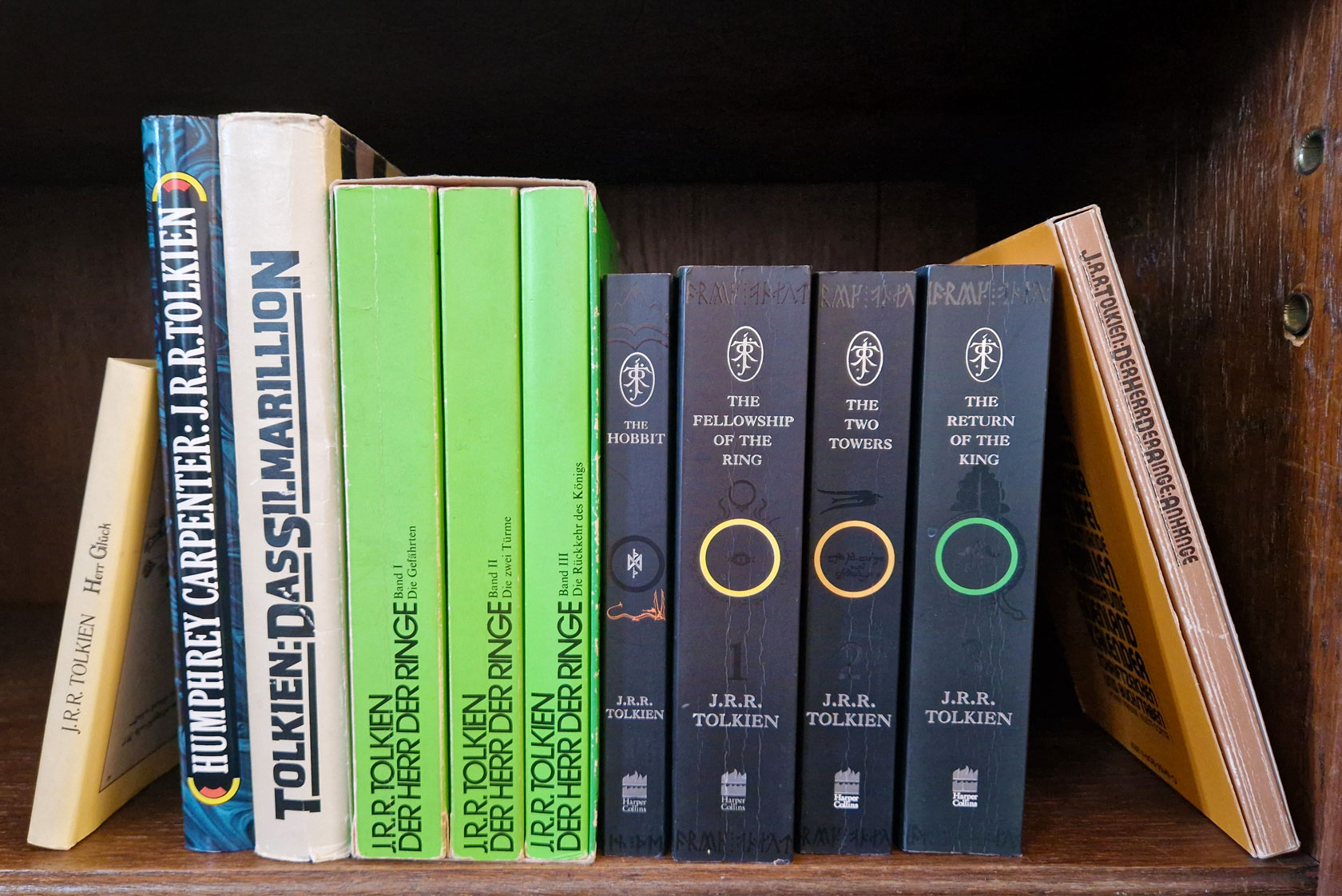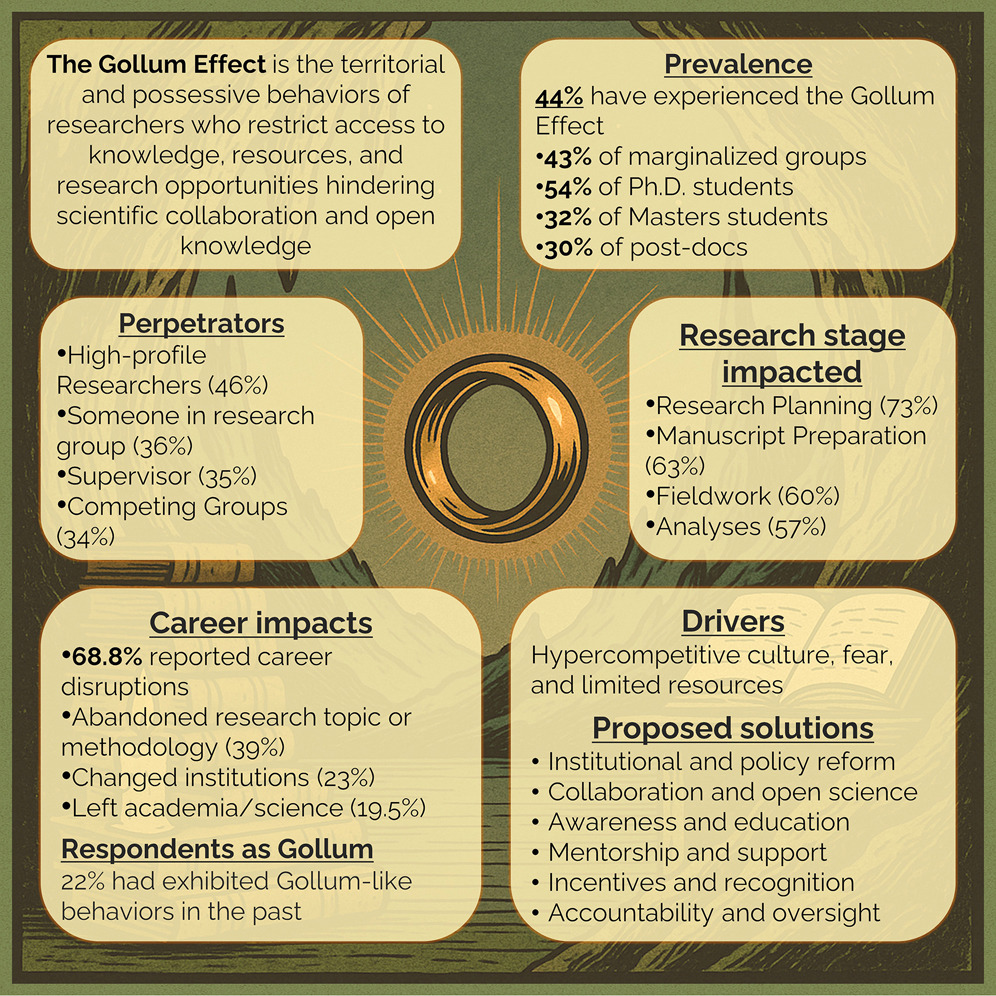
Gollum Effect Harms Research: Why Open Science Could Help Solve the Problem
Possessive and territorial behaviours of researchers are impeding collaboration and the free flow of information, one of the foundations of scientific progress. These behaviours, including the reluctance to share data, methodologies, research topics or even research fields were the subject of a new study. The authors termed it the Gollum effect. The study also offers insights on what might help to mitigate it and to foster collaboration in research.
by Birgit Fingerle (ZBW)

It is generally assumed that collaboration and knowledge sharing lead to scientific progress. A recently published study called “Systemic territoriality in academia: The Gollum effect’s impact on scientific research and careers” examines one important obstacle impeding collaboration and thus scientific progress.
What is the Gollum effect?
The Gollum effect describes territorial and possessive behaviours of researchers that hinder research opportunities and collaboration. These include the reluctance to share information, data, resources and methodologies. It also encompasses research topics or even extends to entire fields of study. Thus, the Gollum effect threatens open collaboration, the foundation of research work. The term Gollum effect is a reference to the Lord of the Rings character with the same name who shows secretive and possessive behaviour.
The study reports that the Gollum effect disproportionately affects early-career and marginalised researchers and that high-profile researchers, group members, supervisors, and competing groups are common perpetrators. This behaviour allows researchers to exploit advantages, for instance establishing a research monopoly, especially by contrast with early-career researchers. It undermines science by weakening diverse perspectives and knowledge generation, leading to a waste of efforts and delaying new findings which might also result in critical breakthroughs.
Many researchers experience the effect
The study found that 44% of researchers in ecology and conservation have experienced the Gollum effect, over half of them during the Ph.D. stage of their careers.

Systemic territoriality in academia: The Gollum effect’s impact on scientific research and careers by Jose W. Valdez, Sandeep Sharma and John Gould
Though the study focuses on researchers in ecology and conservation, one might assume that the Gollum effect also has some impact in other subject areas.
Significant impact on research work and careers
The Gollum effect often had severe consequences as over two-thirds reported career disruptions. Among them: forcing researchers to abandon topics, alter methodologies, switch institutions, change fields, or leave academia altogether.
Nearly three-quarters reported that the Gollum effect interfered during research planning, followed by nearly two-thirds (62.7%) during manuscript preparation and fieldwork (59.4%). More than half also reported disruptions during analyses, journal review, and grant proposals. Respondents also reported significant impacts of the effect in other research activities. Research topics were the primary target of the Gollum effect (72.1%), followed way behind by study species, study sites and methodologies.
The Gollum effect is systemic
The findings show that the Gollum effect is a systemic issue within academia. That is why there is an urgent need for a cultural shift in academia to enable a more open and innovative scientific community working on collaboratively solving important global issues. It should be supported by institutional reforms, Open Science policies, and accountability measures.
One-fifth of the study respondents admitted engaging themselves in similar behaviours. These behaviours seem, driven by the hypercompetitive “publish or perish” culture in academia, fear, and limited research funding and career opportunities.
As supervisors play a key role in fostering toxic academic cultures (according to other studies), possessive and territorial patterns of behaviours can create a self-perpetuating cycle. This means, past victims may unconsciously behave this way or early-career researchers learn to mimic these behaviours.
Possible solutions
The study identified six key approaches addressing cultural and structural challenges to mitigate the Gollum effect that were stated by the survey respondents:
- Awareness and education: the need for workshops, training sessions, and institutional discussions to increase understanding and deter exclusionary behaviours.
- Institutional and policy reforms: among them the stable funding for early-career researchers, shifting hiring and grant evaluation criteria to prioritise mentorship and collaboration over publication record, and establishing clear policies on data ownership and authorship to prevent territorial gatekeeping.
- Collaboration and Open Science: for instance, making Open Data mandatory, interdisciplinary teamwork, and recognising non-traditional research contributions such as technical support and data management.
- Strengthening accountability and oversight: with recommendations for independent reporting mechanisms, double-blind peer review, and team-based decision-making to reduce biases in funding and hiring.
- Mentorship and support: the need for better mentorship training, external oversight of student progress, and peer-support networks to help early-career researchers navigate exclusionary environments.
- Incentives and recognition: grants and awards that prioritise teamwork, ethical research practices, and contributions beyond first-author publications to shift the academic culture away from hypercompetition.
The Gollum effect, today disrupts scientific research and academic careers. Open Science might help mitigate the effect and thus be part of the solution.
This might also interest you:
- Zur Studie: Systemic territoriality in academia: The Gollum effect’s impact on scientific research and careers
- Barcamp Open Science 2024: Happy Birthday!
- Open Science Award Winners: Insights and Findings From a Pioneering Practice
- Open Science Symposium: Open Practices and Transparency in Business Studies and Economics
Birgit Fingerle holds a diploma in economics and business administration and works at ZBW, among others, in the fields innovation management, open innovation, open science and currently in particular with the “Open Economics Guide”. Birgit Fingerle can also be found on LinkedIn.
Portrait, photographer: Northerncards©
View Comments

Ambitious Pioneer for Open Science: These are the top Priorities at the EOSC Association
The European Open Science Cloud (EOSC) is currently one of the most ambitious science...



